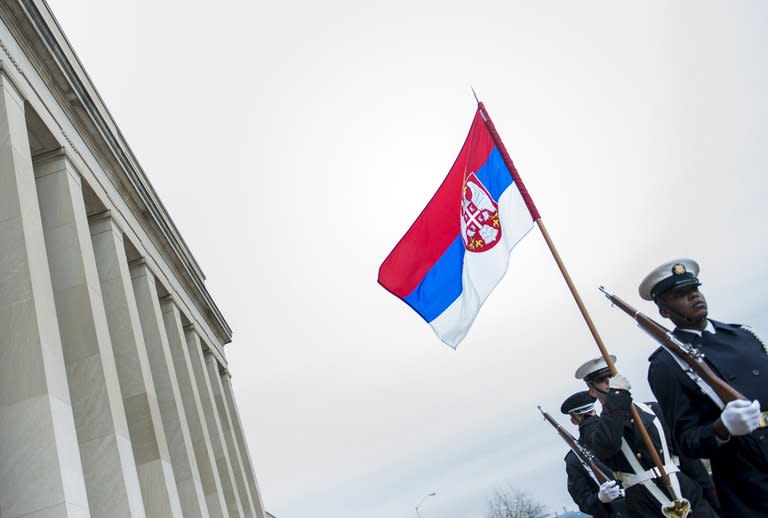Serbian minister asks US to keep up military assistance
Serbia's defense minister, who once served in a government that waged war with the United States and NATO, has asked his American counterpart to keep up US military assistance to his country and to maintain a troop presence in Kosovo, officials said. Aleksandar Vucic, who once cracked down on dissent as information minister under ex-president Slobodan Milosevic and who belongs to an ultra-nationalist political party, expressed appreciation for US security ties and appealed to Defense Secretary Leon Panetta in talks at the Pentagon Friday to continue $8 million in annual military assistance, US officials told AFP. Both Vucic and Panetta, who served as chief-of-staff under former US president Bill Clinton who ordered bombing raids against Serbia in 1999 over Kosovo, marveled at how their conversation would have been impossible not long ago. "I never thought I would be sitting here saying this to you," Vucic reportedly told Panetta, according to US officials who attended the meeting and spoke on condition of anonymity. "But we thank the United States, we want you to continue your assistance to us and to work with us." Vucic told Panetta that not in his "wildest dreams would have I imagined that I would be sitting here across from the US secretary of defense." For his part, Panetta said that "I wouldn't have thought as chief of staff to Bill Clinton that I would be sitting across from you saying Serbia could be a force for peace in the region," according to the account provided by US officials. The Pentagon said in a statement that the two defense chiefs "exchanged ideas on ways to deepen cooperation between the US and Serbia" and that Panetta thanked Belgrade for sending peacekeeping troops for UN missions in Cyprus and Lebanon. Vucic said Serbia appreciates the training, officer exchanges and other defense cooperation provided by Washington since 2006. "I think they want the assistance that we've been providing them, to help modernize and get their military up to NATO standards, to continue," one US defense official said. Serbia is not a full member of the NATO military alliance but belongs to its "Partnership for Peace" program which provides for a range of cooperation on defence and security issues. The NATO alliance waged a 78-day air war against Serbia to end Belgrade's repression of the then province of Kosovo, whose independence has been recognized by 90 states, including the United States. Thirteen years since NATO's air strikes, Serbia still rejects Kosovo's unilateral 2008 proclamation of independence. But Vucic struck a moderate tone on Kosovo during his talks at the Pentagon, suggesting the more nationalist-minded government elected earlier this year would stick by agreements made by the previous ruling coalition. "If he means what he says....that could be really important. They're 100 percent committed to what previous governemnt agreed on Kosovo," the US official said. As information minister in 1998, Vucic presided over legislation that outlawed the broadcast of Serbian-language services from foreign news services and introduced steep fines for independent reporters who spoke against the government.



